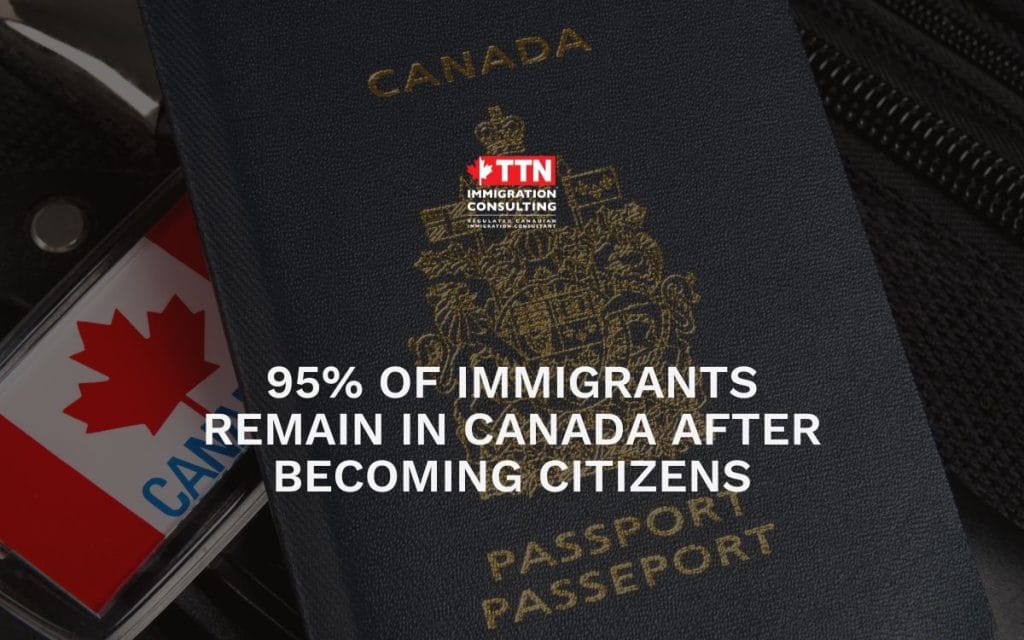95% of Immigrants Remain in Canada After Citizenship – Data Debunks the “Passport of Convenience” Myth
A new study from Statistics Canada reveals that 95% of immigrants continue to live and actively participate in Canadian society after acquiring citizenship. This finding debunks the widespread misconception that many people obtain Canadian citizenship merely to gain a “passport of convenience” and then quickly leave the country.

Canada – A Place to Live and Belong
Canada has long been an ideal destination for millions around the world—not just for economic opportunities, but for the social values the country embodies: equality, multiculturalism, and compassion. Immigrants choose Canada not merely as a place to live, but as a place to build a future and belong to a community that shares their values.
Key Findings from the Study
The study “Citizenship Acquisition and Active Presence of Immigrants in Canada” analyzed data on immigrants to Canada from 2003 to 2012. The results showed that:
- Among immigrants from 2008–2012, ages 25–54:
- 93% of naturalized people still file taxes and work after 10 years.
- Meanwhile, only 67% of non-naturalized people remain actively present in Canada.
- Active presence rates increased among more recent immigrants, regardless of whether they became naturalized. This suggests a growing level of attachment to Canada among new generations of immigrants.
- Notably, immigrants from developing countries tend to stay in Canada longer. For example:
- 97% of Filipinos are still actively present after 10 years.
- Meanwhile, this figure in Americans is 87%.
- Among non-citizens, those with higher levels of education are less likely to maintain a presence in Canada. Specifically:
- Those with a graduate degree had a 16 percentage point lower attendance rate than those with only a high school degree or less.
- People who spoke English or French when they first arrived in Canada had lower rates of presence than those who did not speak either language.
- There was a small (2%) drop in active presence after naturalization – from 97% to 95%. However, this drop was lower than the natural decline of 3% per year in the non-naturalized group.
Naturalization Is Not An End – It's A Commitment
The study concludes that the decision to become a Canadian citizen reflects a desire to stay long-term and actively contribute to the country. This is not a coping or exploitative action, but a sign of deep integration and a lasting commitment to a society they believe in.

